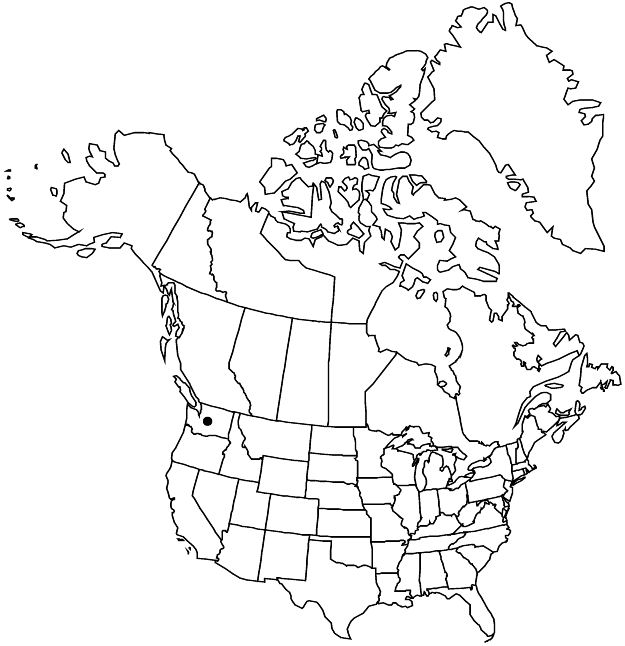Rubus leucodermis var. nigerrimus
Fl. S.E. Washington, 213. 1937.
Common names: Dark or northwest raspberry
Conservation concernEndemic
Basionym: Melanobatus nigerrimus Greene Leafl. Bot. Observ. Crit. 1: 244. 1906,
Synonyms: R. nigerrimus (Greene) Rydberg
Shrubs, 10–20 dm, densely armed. Leaves abaxially glabrous, rarely sparsely hairy. Inflorescences 1–5-flowered. Flowers: petals oblong, 4–7 mm. Fruits: drupelets 20–40, glabrous, rarely puberulent.
Phenology: Flowering Apr–Aug.
Habitat: Moist to dry shrubby thickets and open forests in canyons
Elevation: 200–700 m
Discussion
Of conservation concern.
Variety nigerrimus can be distinguished from the typical variety by its essentially glabrous foliage. This variety is endemic to southeastern Washington near the Snake River in Garfield and Whitman counties. M. E. Peck (1941) reported it (as R. hesperius) from Oregon; no collections from there have been seen as part of this review. The taxonomic status of this variant remains questionable as characters such as pubescence are not discrete and may reflect the effect of environment.
Selected References
None.
Lower Taxa
None.
